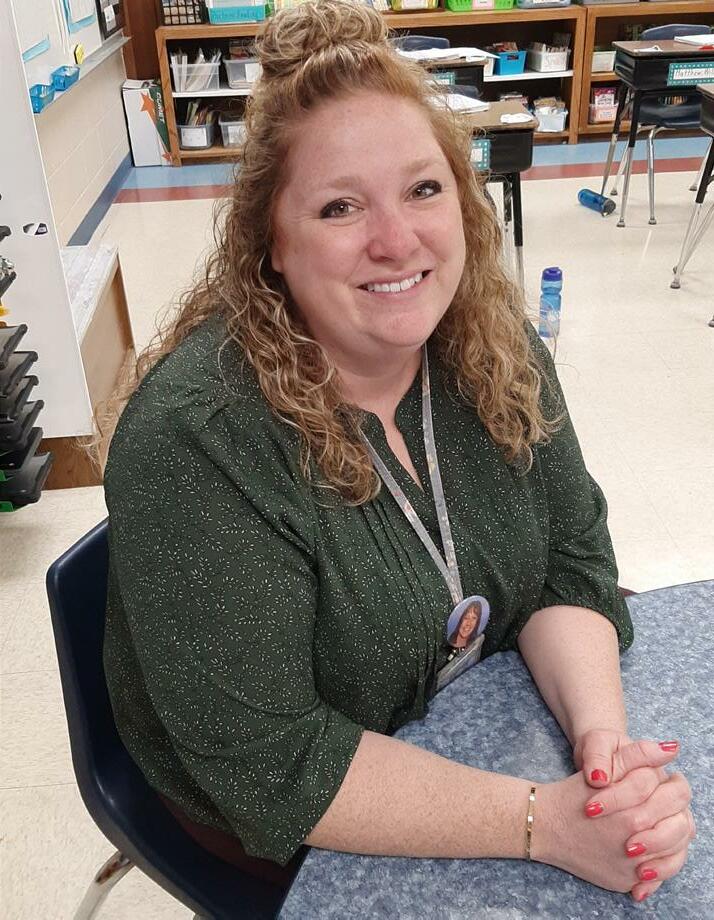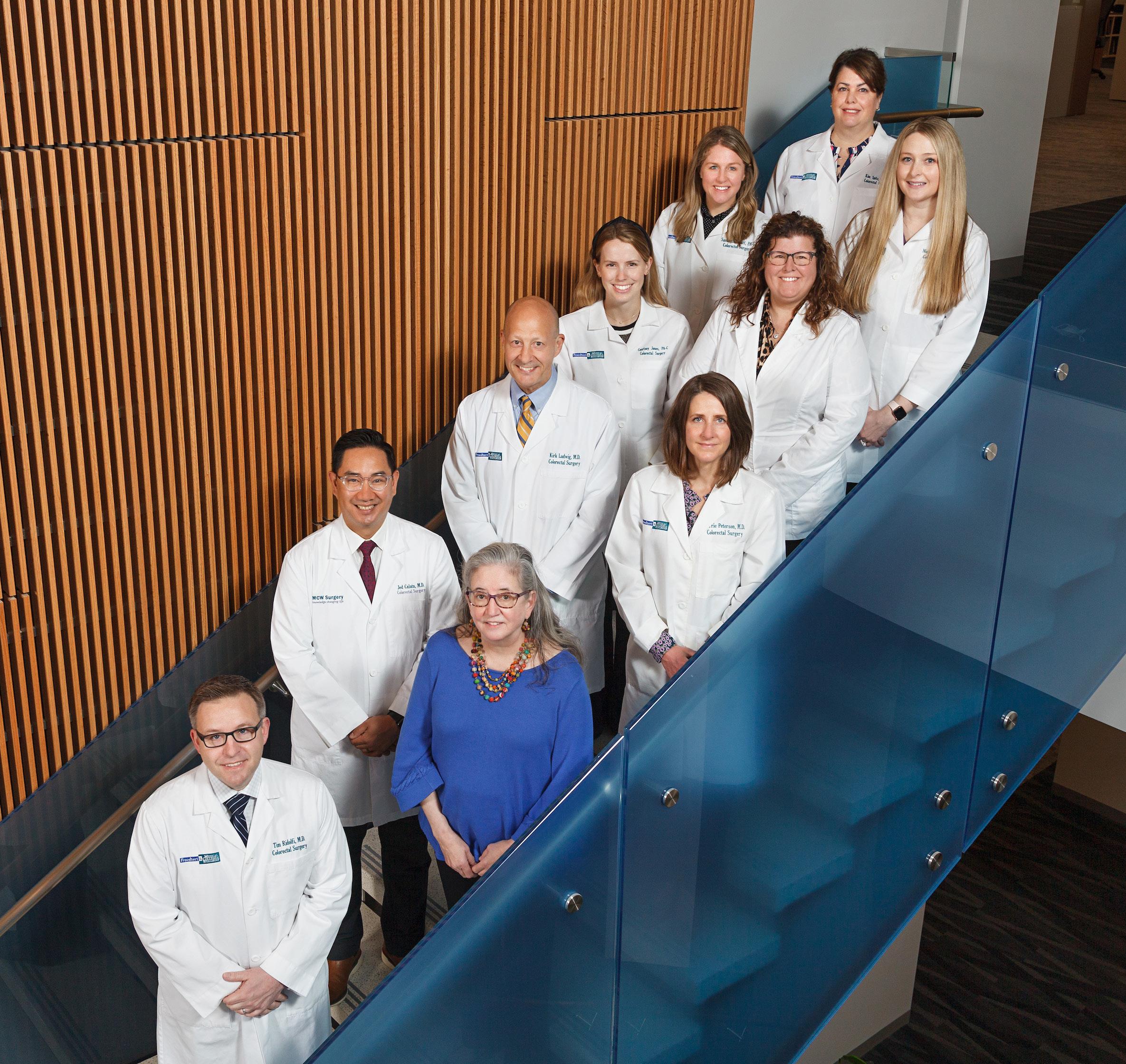
4 minute read
Colorectal Surgery: Jennifer's Story
No 34-year-old should have to worry about rectal cancer and the prospect of a permanent colostomy, yet this is where Jennifer Jewson found herself in August of 2015. For years Jennifer thought that her rectal bleeding was caused by hemorrhoids, but eventually, a colonoscopy revealed that she had a large tumor in the lowest part of her rectum.
She was referred to the Colorectal Surgery Cancer Clinic for evaluation and treatment. Jennifer had what is called locally advanced low lying rectal cancer; the tumor was outside the rectal wall and had moved into the lymph nodes in the area. Her case was presented at our weekly multidisciplinary colorectal cancer tumor board and a treatment plan was put in place. This included courses of chemotherapy, radiation therapy and lower dose chemotherapy, followed by an operation to remove her rectum and anus and construct a colostomy.
Thankfully, Jennifer is alive and well, and almost seven years after her diagnosis, not only does she not have a colostomy, she never had any surgery at all. Jennifer had what is called a “complete response” to her treatments. This means that the tumor was destroyed by the chemotherapy and the radiation therapy and she has been cured without any operation.
Historically, surgery is the only curative option for patients with rectal cancer. So, how did this happen? The treatment for locally advanced midand low-rectal cancers involves giving chemotherapy and radiation therapy, followed by a large operation to remove the tumor, which may result in a colostomy. After a six-week recovery, patients start a second dose of chemotherapy. Since the early 1990s when this approach was routinely adopted, rectal cancer outcomes improved tremendously. Up to 20% of patients had a “complete response,” and the final pathology report showed that the preoperative chemo and radiation had destroyed the tumor and there was no viable tumor left. More recently, it has become clear that giving all chemotherapy and radiation therapy before surgery has advantages, one being that more patients achieve a complete response and can be spared operation. The challenge, for the surgeon, is deciding if their patient has any viable tumor left after treatments, who should have surgery and who could safely avoid a major operation. Jennifer was one of the latter patients and we now know, with the passage of time, that the proper decision was made to not operate.
Our Colorectal Surgery Division is proud to offer cutting edge treatments for benign and malignant colon, rectal and anal problems. We work closely with our colleagues in Gastroenterology, Medical Oncology, Radiation Oncology, Surgical Oncology and Diagnostic and Interventional Radiology. At MCW/Froedtert, we are surrounded by experts in each of these fields which allows us to offer treatment approaches that patients may not find elsewhere. We are one of only a small number of centers to be designated as a Rectal Cancer Center of Excellence by the National Accreditation Program for Rectal Cancer. Our research mission drives our desire to learn more every day, so that tomorrow’s patients are better cared for than today’s patients. We have recently published research on young age colorectal cancer and the use of advanced MRI techniques for evaluating rectal cancer. We have presented experience with complete response in rectal cancer patients at national meetings, and we are partnering with our patients to collect tumor specimens and blood samples for our Rectal Cancer Tumor Bank so that we can make new and important discoveries. We firmly believe that our patients benefit from our efforts and we are so happy that Jennifer Jewson was one of these beneficiaries. We look forward to her visits with us in the Cancer Center as we are energized each time we see her. Everyone around Jennifer recognizes that she is a kindhearted person and the world is a better place with her in it!

Jennifer Jewson.

Division of Colorectal Surgery Faculty and APPs. From bottom: Drs. Tim Ridolfi, Jed Calata, Mary Otterson, Kirk Ludwig, Carrie Peterson; APPs Courtney Jones, Sarah Lundeen, Samantha Wolff, Nicole Kellner, Kim Spitz.









